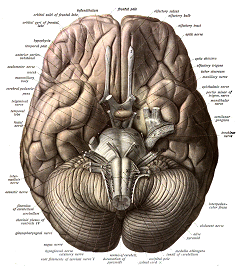Why Midnight Snacks are So Tempting
Whether you’re a habitual late-night eater or not, you must notice how your taste changes throughout the day.
A new American study at Brigham Young University shows that your brain’s response to food is desensitised at night. In other words, you get less pleasure from seeing it, thinking about it or eating it.
Full article: Medical News Today
This could go a long way in explaining cravings for sugary snacks before bedtime. Having a bit of chocolate causes the release of brain chemicals associated with feelings of pleasure, and this “sugar hit” is known to provide a relief from stress by interfering with stress hormones.
According to these results, anybody who uses food to cheer themselves up will be more likely to overindulge at night time than during the day. Dehydration is also often the cause of food cravings and overeating.
Too much sugar is linked to a wide range of very serious health conditions. Followers of this newsletter and those familiar with insulin resistance will recall type 2 diabetes, where your cells become resistant to the hormone insulin that’s released after you eat. We’ve also mentioned the emerging link between added sugars and heart disease.
And now, the latest major illness to be linked to sugar is Alzheimer’s disease. Alzheimer’s is incompletely understood, but it can involve a wrongly-shaped type of protein in your brain, which accidentally bind to each other to form a large damaging structure. Testing on mice, a report in the Journal of Clinical Investigation showed that these conglomerations form more quickly when blood-sugar levels are high.

Brain from bottom up view
“Our results suggest that diabetes, or other conditions that make it hard to control blood sugar levels, can have harmful effects on brain function and exacerbate neurological conditions such as Alzheimer’s disease.”
If you think you aren’t one of these people who eats a lot of sugar, then consider all the things you eat that come in a packet. Check out the added sugars comparison quiz at Fusion to test your awareness.
As for those sugar cravings? Try taking a walk. Exercise is also a powerful stress-buster, and it’s a far more sustainable one.
HSG can teach your team some simple, easy ways to make powerful dietary changes. Check out our Nutrition Seminars page for more.

